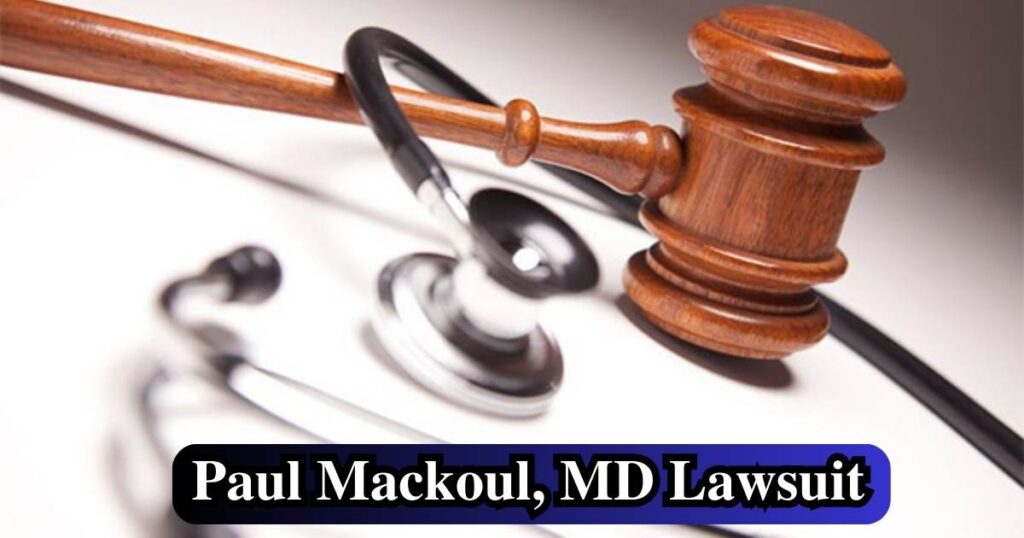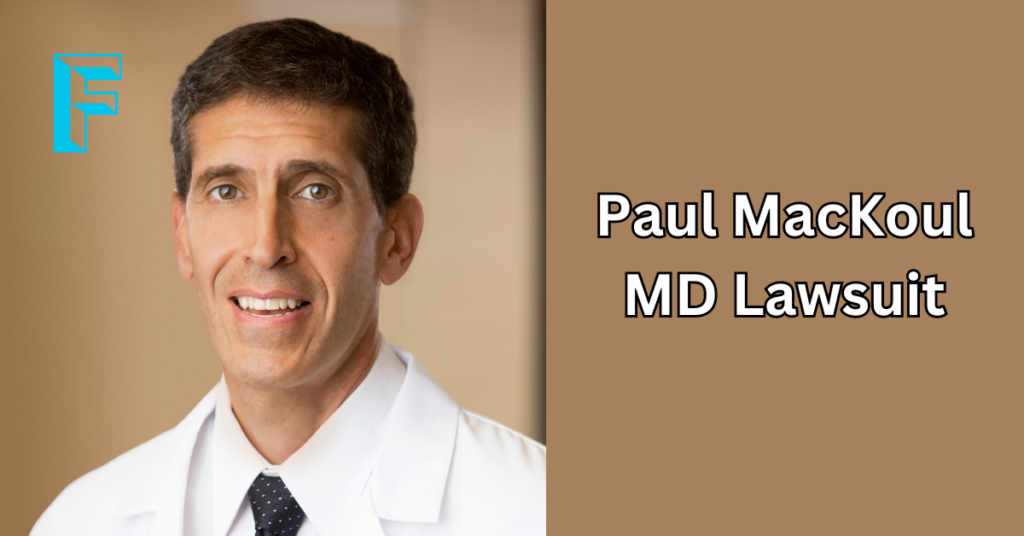
Introduction:
“Mackoul” In the realm of healthcare, trust and reputation are invaluable currencies. They serve as the cornerstone of patients’ confidence in medical professionals and institutions. However, when allegations of malpractice emerge, they can cast a long shadow over the entire field, challenging established standards and eroding public trust. One such case that has garnered significant attention is the lawsuit involving Dr. Paul Mackoul, shedding light on the intricacies of surgical procedures, patient care, and professional accountability.
Background:
Dr. Paul Mackoul, a prominent figure in the field of surgery, has found himself at the center of a legal storm, with allegations of malpractice swirling around him. As the founder of several healthcare centers renowned for their specialized surgical procedures, Mackoul’s reputation was once synonymous with excellence and innovation. However, recent developments have cast doubts on his practices and raised questions about patient safety and quality of care.
The Lawsuit:
At the heart of the controversy lies a lawsuit filed against Dr. Paul Mackoul, alleging negligence, malpractice, and breach of standards of care. The case, brought forth by former patients and their families, paints a troubling picture of surgical procedures gone awry, postoperative complications, and inadequate follow-up care. These allegations strike at the core of Mackoul’s professional integrity and the ethos of his healthcare centers.
Allegations and Evidence:
Central to the lawsuit are allegations of deviations from established medical standards during surgical procedures performed by Dr. Paul Mackoul. Plaintiffs argue that these deviations resulted in adverse outcomes, including complications that could have been prevented with proper care and adherence to protocols. Moreover, the lawsuit presents compelling evidence, including medical records, testimonies from experts, and data analysis, to substantiate these claims.
Implications and Repercussions:
The implications of the Paul Mackoul MD lawsuit reverberate far beyond the confines of the courtroom. At stake is not only the reputation of an individual surgeon but also the trust of the community in healthcare professionals and institutions. Furthermore, the outcome of this case may set a precedent for future litigation involving similar allegations, shaping standards of practice and patient care in the field of surgery.
Healthcare Standards and Patient Safety:
The lawsuit against Dr. Paul Mackoul underscores the importance of upholding rigorous healthcare standards to ensure patient safety and well-being. In an era where advancements in medical technology and procedures abound, adherence to established protocols and guidelines remains paramount. Failure to meet these standards not only jeopardizes patient outcomes but also erodes the trust that forms the foundation of the doctor-patient relationship.
Legal Proceedings and Courtroom Drama:
As the lawsuit unfolds in court, both sides present their arguments, backed by expert testimony and evidence. The proceedings offer a glimpse into the complexities of medical malpractice cases, where the nuances of surgical techniques, postoperative care, and documentation come under scrutiny. For Dr. Paul Mackoul, the courtroom becomes a battleground where his professional reputation and livelihood hang in the balance.
Mackoul’s Defense: Challenging Allegations and Presenting Counterarguments
In response to the allegations leveled against him, Dr. Paul Mackoul mounts a robust defense, contesting the claims of negligence and malpractice. Mackoul and his legal team meticulously dissect the evidence presented by the plaintiffs, aiming to refute accusations and highlight mitigating factors. Central to Mackoul’s defense are assertions of adherence to established standards of care, thorough documentation of procedures, and diligent postoperative monitoring. Moreover, Mackoul’s defense seeks to contextualize adverse outcomes within the broader landscape of surgical risks and complexities, emphasizing the inherent uncertainties of medical practice. As the courtroom drama unfolds, Mackoul’s defense strategy becomes a critical determinant of the case’s outcome, shaping perceptions of his professional conduct and accountability.
Patient Perspectives: Voices from the Frontlines of Healthcare
Embedded within the legal intricacies of the Paul Mackoul MD lawsuit are the voices of patients and their families, whose experiences offer poignant insights into the realities of healthcare delivery. Through firsthand accounts and testimonies, plaintiffs shed light on their journeys through surgery, recovery, and the aftermath of complications. Their narratives underscore the profound impact of medical errors and lapses in care, revealing the human toll of malpractice allegations. Moreover, patient perspectives serve as a catalyst for broader conversations about patient advocacy, informed consent, and the need for greater transparency in healthcare. In the courtroom, these voices resonate with jurors and observers alike, underscoring the imperative of prioritizing patient safety and well-being.

Beyond the Lawsuit: Implications for Healthcare Policy and Practice
While the Paul Mackoul MD lawsuit unfolds within the confines of the legal system, its ramifications extend far beyond individual culpability to encompass broader implications for healthcare policy and practice. At the intersection of litigation and healthcare reform, policymakers, industry stakeholders, and professional bodies grapple with the imperative of strengthening oversight mechanisms, enhancing quality assurance protocols, and bolstering accountability frameworks. Moreover, the lawsuit prompts a reevaluation of reimbursement models, healthcare financing, and the role of regulatory agencies in safeguarding patient interests. As the healthcare landscape evolves in response to legal challenges and societal expectations, the legacy of the Paul Mackoul MD lawsuit reverberates through the corridors of hospitals, boardrooms, and legislative chambers, shaping the contours of future healthcare delivery.
The Role of Healthcare Institutions and Regulatory Bodies:
Amidst the legal proceedings, healthcare institutions and regulatory bodies find themselves under scrutiny as well. Questions arise regarding the oversight and accountability mechanisms in place to ensure compliance with standards of care. Furthermore, the role of professional boards and licensing authorities comes into focus, as they grapple with the responsibility of upholding professional ethics and safeguarding public health.
Patient Advocacy and Community Response:
In the face of allegations against a renowned surgeon like Dr. Paul Mackoul, patient advocacy groups play a crucial role in amplifying the voices of those affected and demanding accountability. These groups serve as a beacon of support for patients and their families, offering resources, guidance, and a platform to share their experiences. Moreover, the community at large responds to such cases with heightened awareness and scrutiny, underscoring the importance of transparency and accountability in healthcare.
Navigating the Fallout:
Regardless of the outcome of the lawsuit, its impact on Dr. Paul Mackoul’s career and reputation is likely to be profound. Even in the absence of legal culpability, the mere association with allegations of malpractice can tarnish a healthcare professional’s standing and erode patient trust. Moving forward, Mackoul and his healthcare centers must navigate the fallout from this legal ordeal, striving to rebuild trust and uphold the highest standards of patient care.
Conclusion:
The Paul Mackoul MD lawsuit serves as a sobering reminder of the complexities and challenges inherent in the field of healthcare. As allegations of malpractice reverberate through the corridors of hospitals and courtrooms, they compel us to reexamine our commitment to patient safety, professional integrity, and ethical practices. Ultimately, the outcome of this case will not only shape the fate of an individual surgeon but also influence the broader landscape of healthcare standards and accountability.



